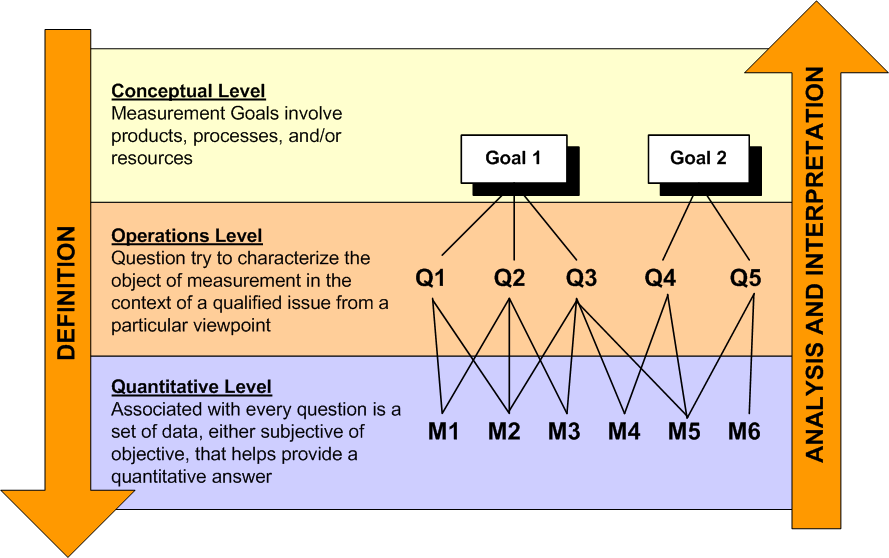So you want to create some metrics. More importantly, someone has told you that you need to create some metrics. How do you know if you're just making work for yourself or if you're just putting a spin on the same old data?
Ask yourself what the goals of your project are.
In trying to determine what to measure in order to achieve those goals, I recommend using a Goal-Question-Metric (GQM) paradigm. It can actually be applied to all life-cycle products, processes, and resources. I've been using this process for a few years and it really helps me creat a quality metric. The GQM paradigm is based on the theory that all measurement should be [1]goal-oriented i.e., there has to be some rationale and need for collecting measurements, rather than collecting for the sake of collecting. Each metric collected is stated in terms of the major goals of the project or program. [2]Questions are then derived from the goals and help to refine, articulate, and determine if the goals can be achieved. [3]The metrics or measurements that are collected are then used to answer the questions in a quantifiable manner.
Here is an example of the GQM in action:
Goal (use this 4-step process to shape a goal)
[1] Purpose [2] Issue [3] Object (process) [4] Viewpoint
Goal 1
[1] Purpose [2] Issue [3] Object (process) [4] Viewpoint
Maintain a maximum level of customer satisfaction from the Help Desk user’s viewpoint
Question 1
What is the current help desk ticket trend?
Metrics 1 Metrics 2 Metrics 3 Metrics 4
Number of help desk tickets closed Number of new help desk tickets % tickets outside of the upper limit
Subjective rating of customer satisfaction
Metrics 5
Number of new help desk tickets open
Question 2
Is the help desk satisfaction improving or diminishing?
Metrics 6 Metrics 7 Metrics 8 Metrics 9
Number of help desk calls abandoned Number of help desk calls answered Number of help desk calls sent to voicemail
Subjective rating of customer satisfaction
As the great Lord Kelvin once said, "If you can not measure it, you can not improve it."
Image based on Basili, Caldiera, and Rombach "The Goal Question Metric Approach", 1990

 After reading the book
After reading the book 